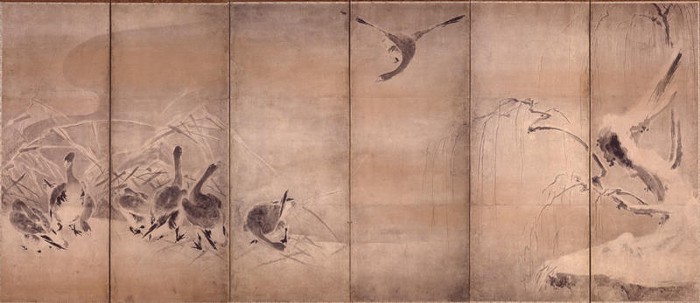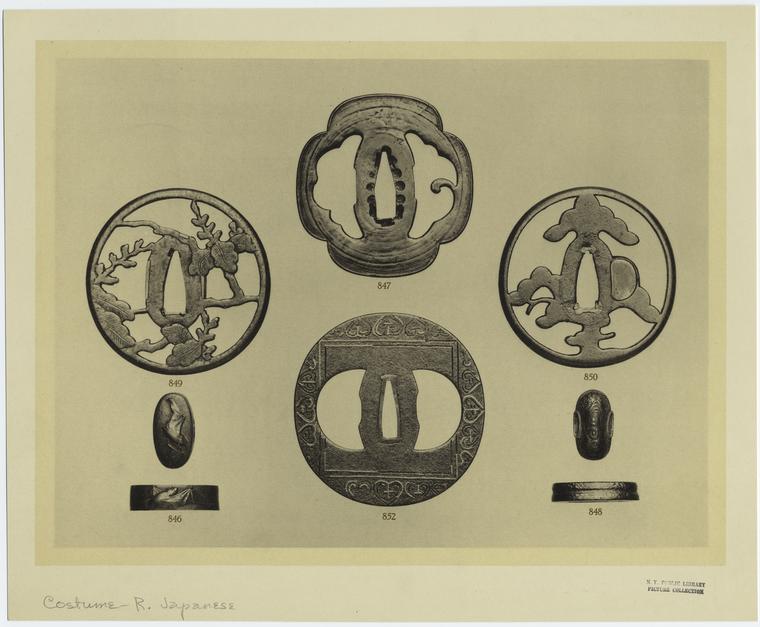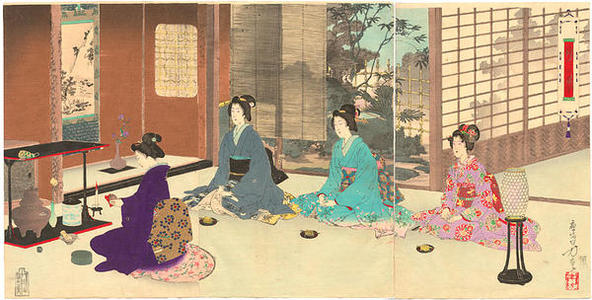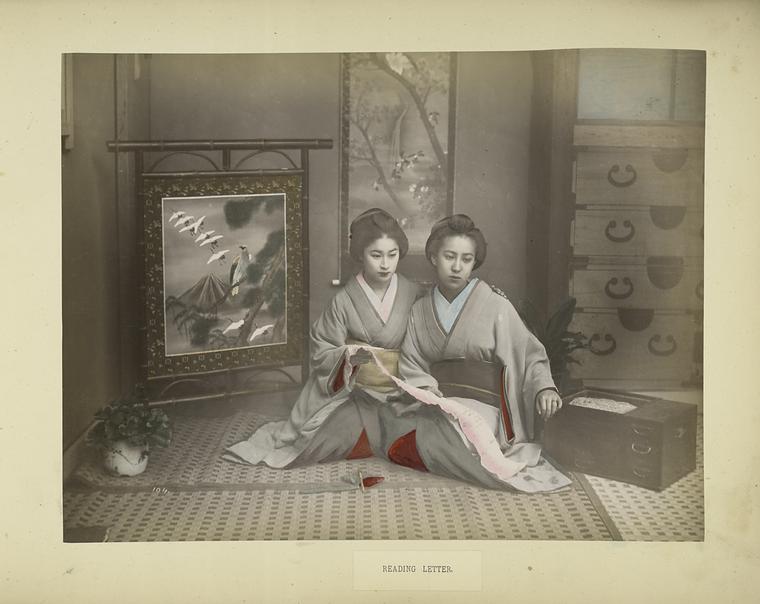
The wisdom of Japan and China remains valuable for us today. Like the wisdom of Stoicism, we can look toward the past for lessons on how to live in the present. If you are a Christian who studies Scripture, this idea shouldn’t be new. But many Christians hesitate to add outside wisdom to their lives. This is known as syncretism, the mixing of religious and philosophical traditions while ignoring their irreconcilable aspects. Think forcing monotheism and paganism together. Syncretism can be stretched to include time-period differences. However, wisdom is wisdom no matter where it comes from. In fact, Scripture states all wisdom comes from God (Proverbs 2:6-15; Job 12:13; James 3:17). Using this idea, it doesn’t matter what tradition wisdom comes from. This doesn’t mean you should ignore the differences in traditions. Wisdom involves discernment and understanding. Differences in traditions and cultures and time periods offer wisdom too. So with all of this in mind, I wanted to share some of my favorite wisdom-sayings. These sayings inspire me. My understanding and application of them may be beyond the original intention of the statement, but the wise make the wisdom of others their own (not that I am wise by any means). I have to admit that I’m more influenced by Stoicism and, of course, Christian wisdom writings. However, ideas of China and Japan, especially Zen, have influenced me too.
It does not matter how slowly you go as long as you do not stop.
–Confucius
We live in a society that values immediacy: immediate satisfaction, immediate profit, immediate progress. Stable, slow progress isn’t popular. It’s difficult, too, because you can’t always see progress. If your progress works like a math problem like this: 1+3-2, frustration mounts. But stable, slow growth is how nature works. Crops grow over time. Trees grow over decades. I have to remind myself of this almost daily. Slow progress, even if that progress is merely not stopping, remains hard for me. Like you, I want immediate results. Instead, I have to relearn that Japanese word for the 50th time. I have to delete weeks worth of fiction writing and start over. I’m sure you’ve been in a similar situation where you spin your wheels. Yet, you must not stop.
It is good to face challenges in your youth. He who has never suffered will not sufficiently temper his character. –Yamamoto Tsunetomo
I wish I had known of this quote when I was younger! Throughout my elementary, middle school, and my high school years, I was bullied. The challenge of it, along with a series of deaths in the family and a messy breakup with my girlfriend in the early-to-mid 20s, forged me into the person I am now. Challenges build character. Of course, this isn’t to glorify or validate bullying. However, challenges force you to face your weaknesses. Have you watched a blacksmith make a knife or a sword? The pounding of the hammer forces out impurities from the steel and forces the layers to bond together. So too challenges pound your psychology and character, forcing out what is unhealthy (if you work to have a resilient mind, anyway). Of course, unlike a blacksmith, people who bully or challenge you don’t usually have your welfare in mind. Suffering, however, teaches compassion.

I know nothing about surpassing others. I only know how to outdo myself.
–Bushido Proverb
This bit of wisdom ties with the previous two ideas. A wise person doesn’t worry about the opinions of others or trying to outshine others. Instead, a wise person does not stop (Confucius) and uses suffering to hammer the soul into shape. In this way, a wise person surpasses the self a little at a time. In reality, we aren’t competing with others; we compete against ourselves. And that should be the focus. Competing with others becomes an endless struggle. There’s always someone who will have more or perform better than you. You can’t win in such a comparison. But you can outdo yourself each day, each hour.
Today is victory over yourself of yesterday; tomorrow is your victory over lesser men.
–Miyamoto Mushashi
Musashi rephrases the Bushido proverb above. He is saying you should aim to improve your level of character each day. I understand “tomorrow is your victory over lesser men” in two ways. First, the lesser man is you. If you seek improvement every day and only know how to surpass yourself, each day is a victory over your lesser self. The second way I understand the quote: tomorrow never comes. Lesser men focus on goals that can never be achieved: tomorrow. All you can live within is the present. When you consider the past, you are in the present. When you consider the future, you are still in the present. Victory is using the present to improve yourself and not focusing on the past nor on the future.

It is a wretched thing that the young men of today are so contriving and so proud of their material possessions. Men with contriving hearts are lacking in duty. Lacking in duty, they will have no self-respect.
–Yamamoto Tsunetomo
This quote shows how humans don’t really change. Tsunetomo lived between 1659 and 1719, but his quote could well be said by my grandmother. The quote not only shows a “kids these days” perspective, but it also shows how concerns about greed, materialism, and lack of duty–what we would call responsibility–haven’t changed. Tsunetomo’s idea is true. People who contrive against others, such as a polished social media profile, and chase goods or experiences or pleasures lack true self-respect. True self-respect recognizes you are more and better than these things. In the Christian tradition, you are the very temple God lives within. Nothing material or social can top that.
Care about what other people think, and you will always be their prisoner.”
–Lao Tzu
Lao Tzu ties together everything I’ve quoted so far. Caring about the opinions of others enslaves you to them. You no longer focus on surpassing yourself as you chase material goods, experiences, and pleasures that compromises your self-respect and true purpose. Bullying only works when you care with other people think. When you care about the opinions of others, Instead of using your suffering to forge your soul, you forge chains. Likewise, when you care about the opinions of others, you forget the importance of never stopping. Instead, you allow outside opinions to discourage your slow growth and eventually stop you. You then fail to outdo yourself of yesterday.

I mentioned character often. Character is who you are, the sum of your thoughts and actions. Your character drives your choices and how you see yourself. Your character is your identity. As Marcus Aurelius quoted: “The soul becomes dyed with the color of its thoughts.” Your thoughts define your character and, in turn, your character defines your thoughts. Fortunately, you can change your thoughts in the present, and so outdo the yourself of the previous moment. In fact, Christianity bases itself on this reality; God offers the gift of grace that can be accepted in the present moment, and a godly character can be chosen in the present moment. Sin, or failure, is a given. Hence, the need for grace, but we can still strive to outdo the person of yesterday. In fact, faith demands progress and action (James 2:14-26).
Despite the distance in culture and time, Japan and China (and Stoicism and Zen) offers insights that remain valuable for modern Westerners and for Christians. The perspective can be just different enough to shake your understanding and refresh what you already know. We are lucky to have access to so much wisdom from so many different cultures and time periods. And as you learn more, you start to see patterns and repetitions. All wisdom comes from God, after all, and human understanding hasn’t changed. But some ways of framing identical ideas appeal more to some than others ways of describing them.
Are you outdoing the yourself of yesterday?




Great post! As someone who studied the Bible’s wisdom literature as it related to other Ancient Near East wisdom literature, I can second that Christians are certainly encouraged to recognize the virtues in the sayings and principles of other faiths and cultures, so long as they recognize that what ultimately renders these sayings “wise” is their contextualization within the understanding that God is their true source. Thanks for sharing the sayings you did – I think you’re right in saying that the phrasing of similar ideas in the imagery of different cultures can be really helpful for understanding those ideas better!
Thank you! There’s no such thing as human wisdom. We only channel and discover God’s wisdom.